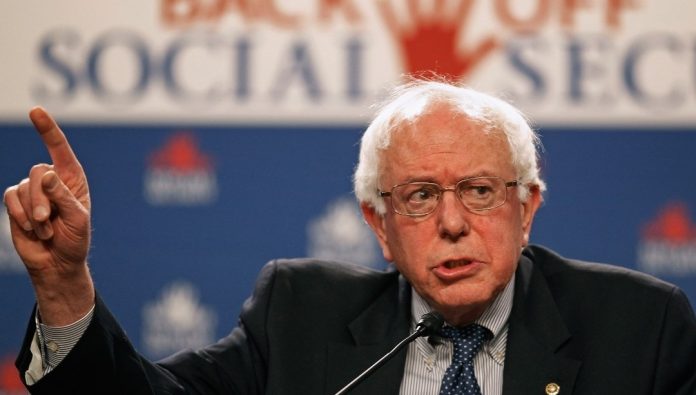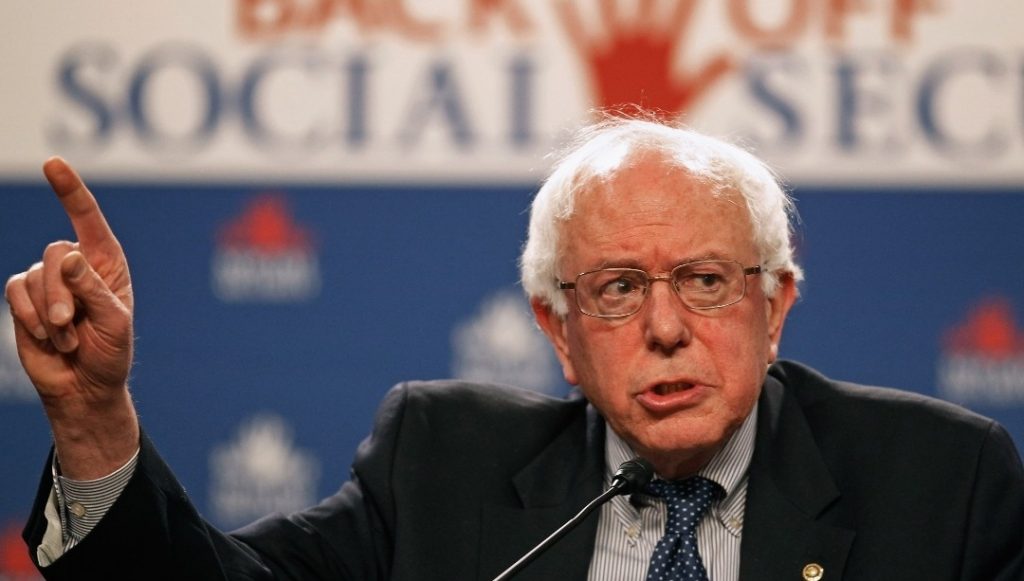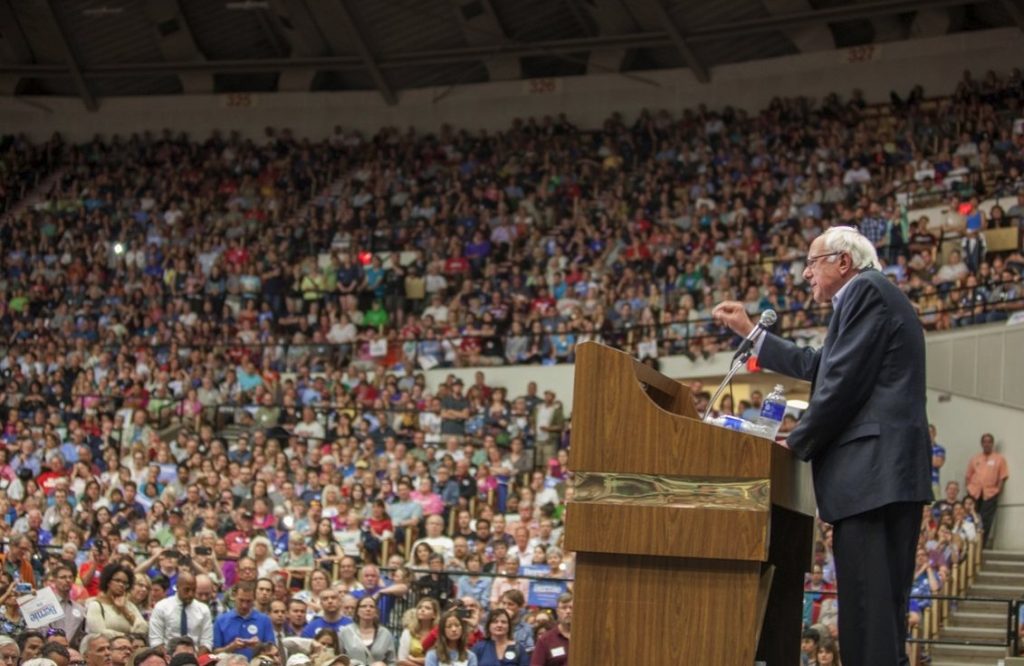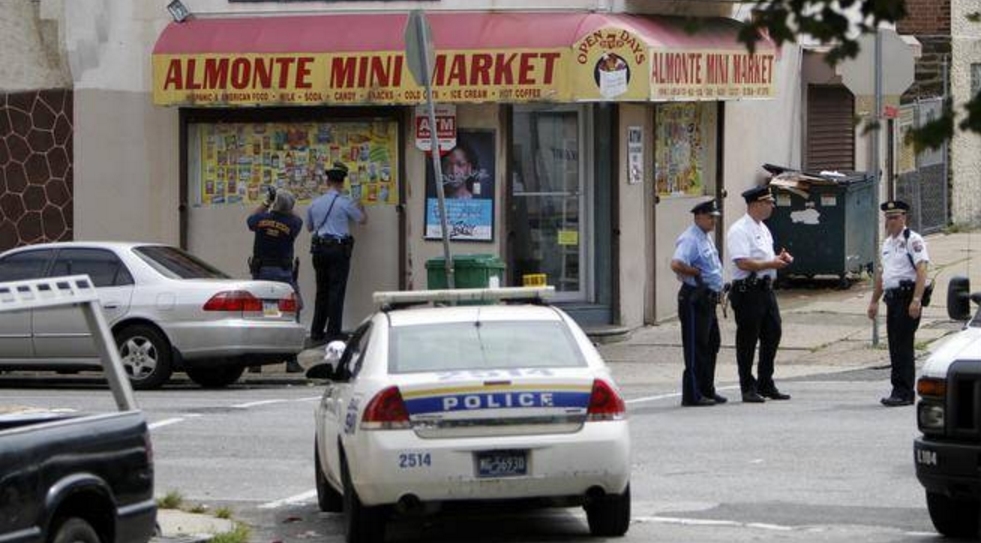
It was a question inspired by Avenue Q, the Broadway musical.
More than an hour into Sunday night’s debate in Flint, Mich., CNN’s Don Lemon, apparent in-house CNN expert on race and politics, asked the two candidates onstage a question. It was a question that, due to its contents, by definition cannot be answered honestly.
LEMON: “In a speech about policing, the FBI director borrowed a phrase from Avenue Q saying, ‘everybody is a little racist.’ So on a personal front, what racial blind spots do you have?”
A true personal blind spot is typically not known to the holder, thus making it a blind spot. And the odds that anyone on any debate stage ever will manage, in just a few seconds, to dive deep into their psyche and experiences to recognize and then tactfully admit to their own racism? Well that’s just about never going to happen. Still, that’s what Lemon asked.
Again, in all truth, it was not a good question. But it was a wise attempt to get at something scarcely, if ever, mentioned during one of the many Republican debates. And it seemed to have been aimed at provoking candidate and viewer thought about something far more substantive than the often-referenced, exceedingly nebulous term “race relations.”
How Americans feel about one another matters little in comparison to how honest Americans are about the persistence of laws and practices that pool and then transmit opportunity and disadvantage along racial and ethnic lines across generations. The ways in which Americans personally benefit or struggle and suffer because of who they are is, indeed, a far bigger deal.
To put that in more concrete terms, whether white and black Americans sometimes engage in cross-racial conversations over the water cooler pales in importance to whether black and Latino home-buyers with incomes and credit scores similar to white home-buyers can reliably access the same mortgage interest rates. Paying a higher interest rate for a home, a car, or on a business loan doesn’t just take more money out of one’s pocket in the short-term. It curtails one’s ability to save, to borrow, to even decide where one lives and works. It certainly means that one is less likely to have the substantial savings needed to prevent one’s college-age children leaving school strapped with massive amounts of debt.
Contemplate the patterns that you see in almost any measure of social or economic welfare in the United States. White Americans up and down the income ladder, have access to better housing, schools, health care and more. And the results are clear: Structural inequality matters far more than our feelings because it extends to almost every area of all American’s lives.
However, given the rather large, shall we say, blind spot, in Lemon’s question, it’s not at all surprising that what those watching got from former secretary of state Hillary Clinton and Sen. Bernie Sanders, I-Vt. They offered just a little insight into each candidate’s mind and not much about each candidate’s policy ideas to address racial inequality.
Clinton offered up a less-than-specific example of her own “blind spot.” But she did say that she takes seriously the struggles that non-white Americans continue to face, as well as the burdens and worry this injects into their lives. She alluded to the pain and fear suffered by the parents of Trayvon Martin and too many others like them and said that she’s tried to encourage other white Americans to also give that some thought. And she said this ranks among the reasons that she realizes that racism continues to “stalk” the country and systemic barriers to equality will have to be torn down.
Depending on how individual voters feel about Clinton, that answer merits either a B or a C(plus) on a letter grading scale. She said something, and what she said is true. It came across as reasonably sincere and is supported by the content of her campaign speeches. But she also revealed either her actual racial blind spot or something that she knows many white Americans do not like to acknowledge. That something is this white privilege.
Black Americans don’t just live with the added risk and fear of some kind of unnecessary encounter with police or a self-appointed neighborhood watchman might end in their own or their children’s deaths. Black Americans have to make all manner of daily decisions — when and where to drive and walk, how insistently to assert their rights or defend themselves during an assault, how to parent and prepare their children for the real world, how much ID to carry on one’s person and where to put and keep one’s hands in the event of a police stop, just to name a few — that white Americans simply do not.
Operating without that burden is, indeed, a form of privilege. Clinton has used that term before in a debate. But, that’s not among the things Clinton said Sunday night.
And much like Clinton, Sanders delivered an answer that will be deemed a B- by his supporters and probably a solid D- by those who do not rank among his pre-existing fans. We will say this: We think Sander’s response was a little worse than Clinton’s but nonetheless sincere. Here’s why.
Sanders did talk about something personal — something specific that he had come to realize. And that was what Lemon appeared to ask. But when Sanders talked about his shock that 20 years ago a black colleague and congressman in Washington had opted to stop trying to hail taxis to avoid what Sanders described as the humiliation of available taxi drivers refusing to pick him up, he kind of turned left. (For those unfamiliar with how this experience typically works it’s usually something like this. Taxis with their rooftop available signs turned on refuse to stop, speed up or turn off the sign as they approach a black person trying to hail a cab.)
In fairness, there probably isn’t a lot of street hail activity in Vermont. But since Sanders spends most of his time in Washington, D.C., he should probably at the very least be aware that no part of his story could not also be told by black Americans living in Washington, D.C., New York and many other major metropolitan areas about their transportation experiences tonight. This is an ongoing problem, not one that existed 20 years ago that has since faded away.
Then, while mentioning a host of structural inequalities that need to be addressed in the United States, Sanders said something that almost certainly caused even his most ardent supporters to cringe. That, of course, would be the phrase, “When you’re white, you don’t know what it’s like to be living in a ghetto.” Sanders may have been leaning on a little hyperbole to make his point in brief. But, again, that is what he said.
And, that answer is all kinds of bad. First, there are the simple but not widely known facts that happen to contradict about 18 different stereotypes. Numerically, there are more poor white Americans than any other group. That’s largely because white Americans comprise a shrinking but still existent majority of the population. It is true that blacks and Latinos are disproportionately poor and disproportionately likely to live in a high-poverty neighborhood.
But, it is also true that a little more than 70 percent of black Americans are not poor, and some share of these people have never lived in a ghetto either. Yet, black Americans are more likely to live in a neighborhood with lower quality public facilities (think parks, libraries, schools, stores, etc.) than white Americans with less income. This pattern points directly to the continued existence of housing discrimination, and it’s many forms, but we digress.
Also true: Black Americans up and down the income and education scale are far more likely than white Americans to experience some form of hostile, unethical, inappropriate or illegal contact with the police. That is a proven fact. So, the other part of Sanders’ answer, the part where he implied that some person told him that black people are only mistreated by police in certain neighborhoods, well, that’s also false.
Like stories about race-related taxi pass-bys, if we wanted to, we could collect 100 such personal tales from black Americans who have been middle class or more all their lives in a single hour. That’s the thing about policing that differs according to the color or a citizen’s skin. That’s an immutable part of one’s appearance. And it’s skin color that shapes who gets stopped by the police most often and what happens once such a stop occurs. It is not one’s income, not one’s address or deportment and certainly not one’s outfit. It is skin color and the links that some officers believe exist between race and criminality. When police stop someone, they run a warrant check. They don’t ask for or try to gauge the content of anyone’s resume.
Quite frankly, that’s the kind of thing that someone running for president in 2016 should be able to demonstrate that they know.
Of course, Sanders fans will insist that he doesn’t think that the old taxi-hailing problem is gone. They will also probably advance some alternative read of Sanders’ comments about “a ghetto” and the connection between poverty and police mistreatment. But again, we have to point you to what Sanders did and did not say. That was his answer. Read the transcript.
And, given how frequently Sanders has been rightfully critiqued for leaning a bit too heavy and hard on his 1960s civil rights demonstration record, struggled to appeal to non-white voters and appear aware of issues shaping black American’s lives today (beyond poverty and imprisonment), this answer had some problems.
And again, in all fairness to Clinton and Sanders, the question didn’t really make it very easy for the candidates to turn toward their specific policy ideas to reduce racial inequality. But neither mentioned specific structures — laws and accepted practices — which sustain it. A better debate prompt — one that needs to be asked of both Democrats and Republicans — might be this:
Please identify three things that would rank among your top presidential priorities if elected that would reduce structural racial inequality.




